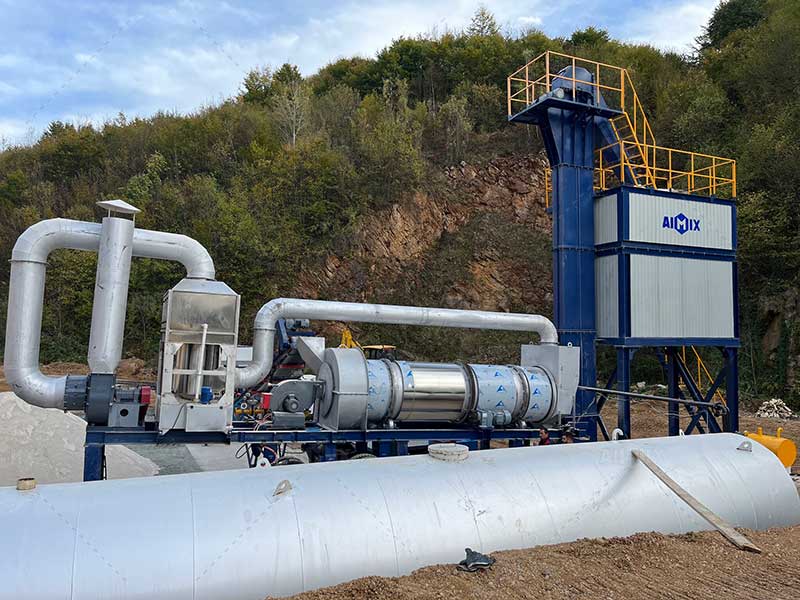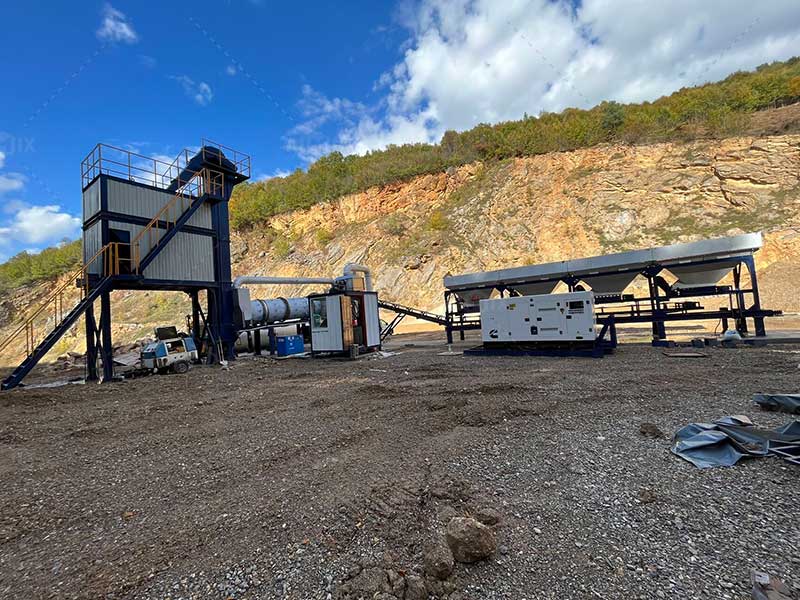Drum mix asphalt plants play a pivotal role in the construction industry, but their environmental impact cannot be ignored. This article delves into the complexities of emissions from these plants and explores innovative solutions for creating more sustainable and eco-friendly operations.
Introduction
Asphalt production is a cornerstone of infrastructure development, and asphalt drum mix plant are key players in this process. However, the environmental implications of their operations have raised concerns. It is crucial to examine emission-related challenges and seek sustainable solutions to minimize the ecological footprint of asphalt production.
Overview of Drum Mix Asphalt Plants
Drum mix plants are designed for continuous asphalt production, utilizing a rotating drum to mix aggregates and asphalt. This efficient process ensures a constant output of high-quality asphalt, making these plants popular in the construction industry.
Despite their efficiency, the environmental impact of drum mix plants, particularly emissions, has become a focal point for industry stakeholders. Addressing these concerns is essential to align asphalt production with modern sustainability standards.

Significance of Addressing Emission Concerns
With growing environmental awareness and stringent regulations, the construction industry faces increased pressure to adopt sustainable practices. Addressing emission concerns in drum mix plants is not just a regulatory necessity but a strategic move towards environmentally responsible construction.
Emission Challenges in Drum Mix Plants
Before delving into solutions, it’s crucial to understand the nature of emissions from drum mix asphalt plants. Identifying pollutants and recognizing their environmental impact is the first step toward effective mitigation. More about dust collector of asphalt plant on this page: https://aimixglobal.com/asphalt-mixing-plant-for-sale/.
Identification of Pollutants
Common pollutants associated with drum mix plants include particulate matter, nitrogen oxides (NOx), sulfur dioxide (SO2), and volatile organic compounds (VOCs). These emissions can have adverse effects on air quality and contribute to environmental degradation.
Environmental Impact and Regulatory Pressures
The environmental impact of these pollutants extends beyond local air quality concerns. It can affect ecosystems, water bodies, and public health. Regulatory bodies are tightening emission standards, compelling the industry to adopt cleaner technologies and processes.

Innovative Solutions for Emission Reduction
Recognizing the challenges is the first step; the subsequent focus is on implementing innovative solutions to reduce emissions from drum mix plants. Several technologies and practices are paving the way for a more sustainable future in asphalt production.
Advanced Combustion Technologies
Upgrading combustion technologies within drum mix plants can significantly reduce emissions. Advanced burners and combustion control systems enhance fuel efficiency and minimize the release of pollutants. This not only lowers environmental impact but also improves overall portable asphalt mixing plant performance.
Incorporation of Green Energy Sources
Transitioning to green energy sources, such as solar or wind power, can further mitigate the environmental footprint of drum mix plants. Integrating renewable energy into the production process reduces reliance on fossil fuels, contributing to cleaner and more sustainable operations.
Integration of Emission Control Devices
The incorporation of state-of-the-art emission control devices, such as baghouses and scrubbers, is crucial in capturing and treating pollutants before their release into the atmosphere. These technologies enhance the overall environmental performance of hot mix asphalt plant, aligning them with stringent emission standards.
In conclusion, sustainable drum mix plants are not just a vision for the future—they are a present necessity. By addressing emission challenges and embracing innovative solutions, the construction industry can pave the way for environmentally responsible asphalt production.